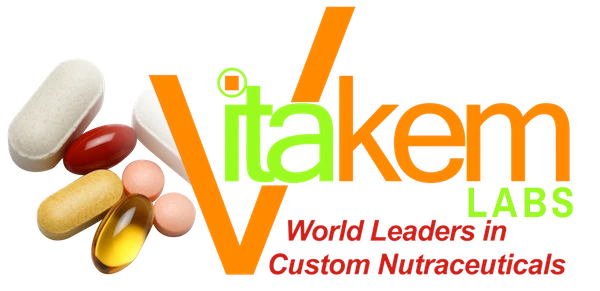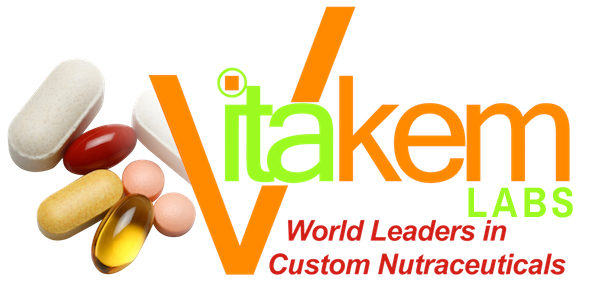As the global focus on health and wellness continues to grow, the nutraceutical industry is witnessing groundbreaking advancements. Consumers are becoming more informed and are seeking products that align with their personalized health goals and lifestyles. In 2025, the nutraceutical industry is poised to deliver innovative solutions backed by technology, sustainability, and cutting-edge science. Here are the top wellness trends shaping the future of nutraceuticals and how they’re driving consumer demand.
1. Personalized Nutrition: Tailored Health Solutions
One-size-fits-all supplements are becoming a thing of the past. Personalized nutrition, powered by advancements in genetic testing and AI, is transforming the way people approach their health.
- Key Innovations: Personalized supplement plans created using DNA testing, microbiome analysis, and wearable health devices.
- Benefits for Consumers: Tailored solutions ensure optimal health results, addressing unique deficiencies and specific wellness goals.
- Market Growth: The personalized nutrition market is projected to grow exponentially, with more consumers willing to pay for customized health plans.

2. Sustainability in Nutraceuticals
As environmental awareness increases, sustainability has become a core value for many consumers. Brands that prioritize eco-friendly practices are standing out in the competitive nutraceutical landscape.
- Popular Trends: Plant-based supplements, sustainably sourced ingredients, and biodegradable packaging.
- Challenges for Brands: Balancing cost-effective manufacturing with sustainable practices.
- Consumer Impact: Millennials and Gen Z are driving demand for transparent, eco-friendly products, making this a non-negotiable focus for brands.
3. The Adaptogen Boom: Stress-Relief at the Forefront
Adaptogens, herbs that help the body manage stress, are gaining significant traction as modern lifestyles become increasingly stressful. Products featuring adaptogens are becoming staples in daily routines.
- Popular Ingredients: Ashwagandha, rhodiola, and ginseng are leading the adaptogen category.
- Emerging Applications: Adaptogens are being incorporated into snacks, teas, and supplements aimed at boosting energy and reducing anxiety.
- Growth Potential: The adaptogen market is expected to see double-digit growth, making it one of the fastest-growing segments in the nutraceutical space.
4. Gut Health Wellness Trends
The connection between gut health and overall wellness is well-established, and the demand for products that support a healthy microbiome continues to rise.
- Trending Products: Probiotics, prebiotics, postbiotics, and synbiotics are expanding consumer choices.
- Emerging Ingredients: Polyphenols, resistant starches, and fermented foods are entering the spotlight.
- Consumer Awareness: Increasing education about the gut-brain axis is driving demand for gut health solutions.
5. Functional Foods and Beverages
Nutraceuticals are no longer limited to pills and powders. Functional foods and beverages are blending nutrition with convenience, appealing to health-conscious consumers seeking on-the-go options.
- Popular Products: Collagen-infused coffee, protein-enriched snacks, and vitamin-infused waters.
- Consumer Appeal: These products combine essential nutrients with the enjoyment of food and drink, offering a seamless way to maintain health.
- Market Expansion: Functional beverages, in particular, are expected to dominate the nutraceutical sector.
6. Advanced Delivery Systems
Innovations in supplement delivery formats are enhancing consumer experience and nutrient absorption. From gummies to nano-encapsulation, brands are reimagining how supplements are consumed.
- Trending Formats: Dissolvable strips, chewables, and liquid capsules.
- Technological Advancements: Nano-encapsulation and liposomal delivery are improving bioavailability and effectiveness.
- Consumer Impact: Convenient and enjoyable delivery systems are attracting new demographics, including younger consumers.
7. Mental Wellness and Cognitive Health
Mental health has become a top priority, with nutraceuticals playing a crucial role in supporting brain function and emotional well-being.
- Key Ingredients: Omega-3 fatty acids, nootropics, and adaptogens like lion’s mane mushroom.
- Popular Products: Supplements targeting focus, memory, and mood regulation are seeing significant growth.
- Future Trends: Research-backed formulations for cognitive health will dominate this category.
8. Immunity-Boosting Supplements
The pandemic has permanently altered consumer behavior, with immunity being a key focus for health-conscious individuals.
- Top Ingredients: Elderberry, zinc, vitamin C, and probiotics.
- Emerging Innovations: Products that combine immunity boosters with other benefits, such as stress reduction or sleep support.
- Long-Term Outlook: Immunity-focused nutraceuticals are expected to remain a staple in wellness routines.
9. Regulatory and Label Transparency
As consumers become more informed, they demand clear and accurate information about the supplements they consume. Transparency in labeling and third-party certifications are becoming essential.
- Key Aspects: Clean labels, non-GMO certifications, and third-party testing.
- Consumer Impact: Brands that prioritize transparency build stronger trust and loyalty.
- Future Implications: Stricter regulations will further elevate the credibility of the nutraceutical industry.
10. Integration of Technology in the Consumer Journey
Technology is redefining how consumers discover, purchase, and engage with nutraceuticals. From personalized recommendations to seamless e-commerce experiences, digital integration is shaping the future of the industry.
- AI-Driven Tools: Personalized health apps and virtual consultations are simplifying consumer decision-making.
- E-commerce Platforms: Online sales channels are becoming the primary avenue for nutraceutical purchases.
- Wearables: Devices that monitor health metrics are driving interest in supplements tailored to individual needs.
Conclusion
The future of nutraceuticals is defined by innovation, personalization, and sustainability. As we move into 2025, the industry is set to deliver cutting-edge solutions that cater to the evolving needs of health-conscious consumers. From personalized nutrition plans to eco-friendly packaging and advanced delivery formats, the trends shaping the nutraceutical market reflect a deeper understanding of what consumers value most: effectiveness, transparency, and convenience.
Brands that embrace these trends will not only thrive but also redefine how wellness is perceived and pursued. By staying ahead of these shifts, businesses can create impactful products that resonate with a diverse and ever-growing audience.



